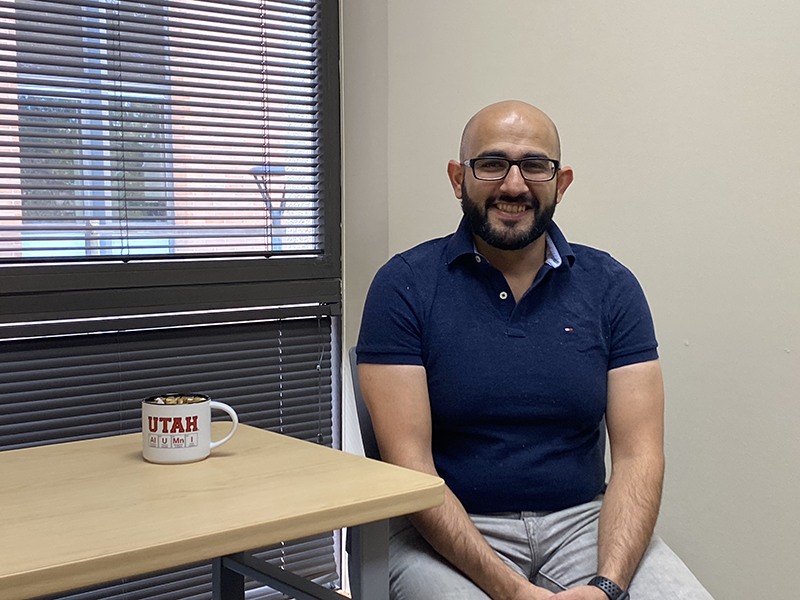SEYYED AMIR HOSSEINI


1. What motivates and inspires you? My biggest inspiration is understanding how nature behaves and using fundamental science to solve real-world problems. As a mentor and teacher, seeing students’ progress and growth motivates the most and gives me an extra reason to follow my career in academia.
2. What interests you most about your research? My research is mainly focused on making organic molecules using electrical current and understanding the mechanism of organic reactions using analytical and electroanalytical tools. I am fascinated by how molecules behave under reaction conditions and how we can solve the puzzle of reaction mechanisms using advanced analytical tools.
3. What do you wish you had known when you first came to Utah? I wish I knew that Utah is a great state and there are ample opportunities for enjoying nature while doing good research.
4. What research topics being explored in the world interest you the most? I am very intrigued by the use of electrochemistry in sustainable chemistry and decarbonization.
5. What do you do for fun outside the lab? How do you handle stress? For fun, I like working out, hiking, and cooking. I employ several methods to handle stress. First and foremost, I compartmentalize issues and tackle tasks based on their priority. Also, I spend time with my friends and use this opportunity to vent my stress and regain calmness. Finally, long walks help clear my thoughts and decrease my stress.
6. What advice do you have for prospective postdocs? Keep your curiosity, remain positive in the face of scientific failures, build a support group from other postdocs and members of your research group, ferment a positive and constructive relationship with your supervisor, and plan for the next step as early as possible.
7. What is the biggest difference between life as a grad student and life as a postdoc researcher? The most significant difference is the level of expectations and responsibilities: postdocs are expected to be very self-sufficient and be able to mentor grad students while conducting their research, whereas for graduate students learning research ideas and the relevant techniques are the top priorities. The second difference is that postdoc life is much busier than a grad student. The postdoctoral period is short, and usually, the postdoc researcher must conduct several research projects simultaneously, whereas graduate students generally handle one project at a time.
8. What do you plan to do after your postdoc? I want to pursue my carrier in academia as the principal investigator, where I will mentor the next generation of scientists and help them to enter the world of science.
December 2022
